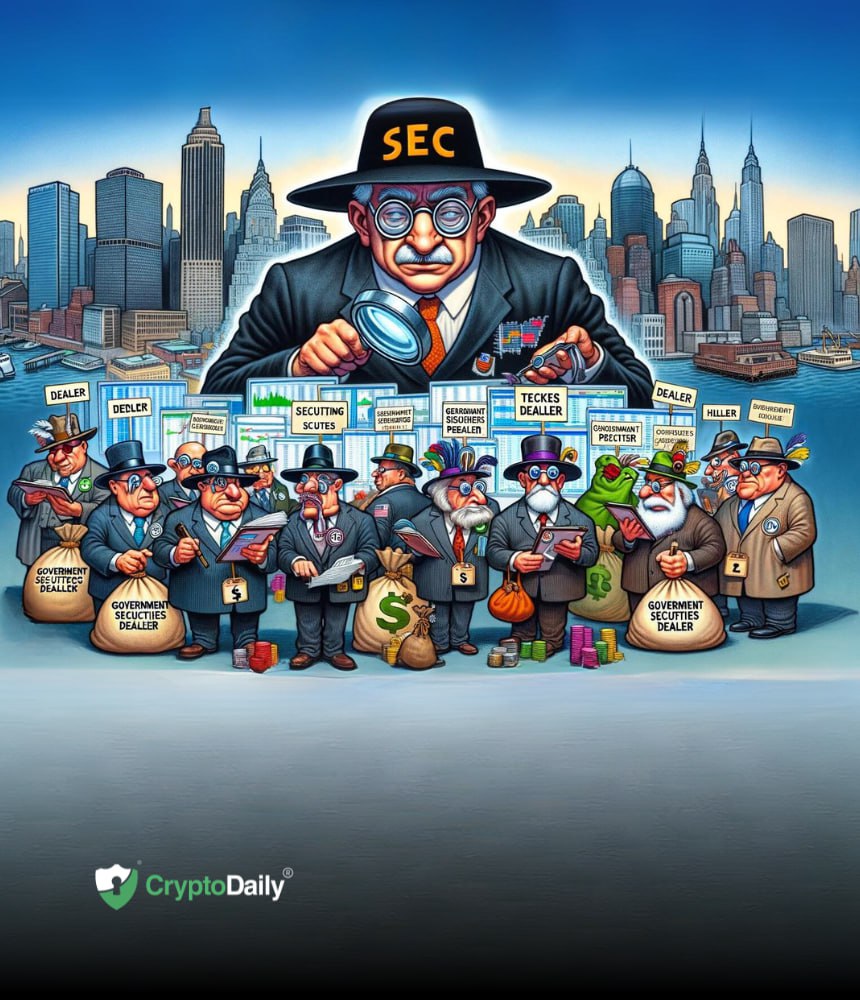
The US Securities and Exchange Commission (SEC) has adopted rules that widen the scope of entities that must register with the agency.
In an ongoing battle with the SEC, the crypto industry has once again gained no meaningful ground. The SEC adopted rules that widened the scope of entities that needed to register with them. While the rules may obviously be interpreted as applying to cryptocurrencies and digital, the word “crypto” only appears once – in a footnote.
Frustration Continues as the SEC Avoids Giving Straight Answers
On February 6, the SEC announced it adopted two rules “that require market participants who engage in certain dealer roles, in particular those who take on significant liquidity-providing roles in the markets, to register with the SEC, become members of a self-regulatory organization (SRO), and comply with federal securities laws and regulatory obligations.”
The regulator’s 247-page rule requires market participants with significant liquidity-providing roles to adhere to federal securities laws and has thrown crypto into the net. The SEC voted 3-2 in favour of adopting the rules that updated the Securities Exchange Act of 1934 to identify activities that would cause persons engaging in activities to be “dealers” or “government securities dealers.” The updates also define what it means to be “as part of a regular business.” In the SEC’s proposed document, the regulator only made one reference to crypto in a footnote.
The SEC’s rules will apply to people transacting in crypto assets that meet the definition of securities or government securities. One exception applies to the rules – having assets worth less than $50 million. Per the newly adopted rules, decentralized finance (DeFi) is included. According to the SEC’s final rule:
“If a person’s trading activities in crypto asset securities, including products, structures and activities involved in the so-called DeFi market, meet the definition of ‘as part of a regular business’ as set forth in the final rules (i.e., the person engages in a regular pattern of buying and selling crypto asset securities that has the effect of providing liquidity to other market participants as stated in the qualitative standard), and no exception or exclusion applies, that person would be required to register as a dealer or government securities dealer.”
The regulator further explained that registration with the SEC allows for “more comprehensive oversight of securities markets” and aids in protecting investors.
“Registration will enable more comprehensive regulatory oversight of securities markets and those participants that take on significant liquidity-providing roles. The final rules will support market stability and resiliency and protect investors by promoting the financial responsibility and operational integrity of significant liquidity providers that are acting as dealers in the securities markets.”
Gary Gensler Says Rules are “Common Sense,” Commission Pierce Pushes Back
Unsurprisingly, SEC Chairman Gary Gensler expressed his support of the rulemaking by commenting:
“I am pleased to support this adoption because it requires that firms that act like dealers register with the Commission as dealers, thereby protecting investors as well as promoting market integrity, resiliency, and transparency.”
Adding;
“These measures are common sense. Congress did not intend for registration and regulatory requirements to apply to some dealers and not to others. Absent an exemption or exception, if anyone trades in a manner consistent with de facto market making, it must register with us as a dealer – consistent with Congress’s intent.”
The rulemaking received pushback from SEC Commissioner Hester Pierce. The Commissioner is well known for her pro-crypto views, earning her the nickname “Crypto Mom”. In a statement, Pierce said:
“I cannot support the final rule. Even though streamlined substantially, it perpetuates the proposal’s fundamental flaw. The rule defines dealer in a way that is inconsistent with the statutory framework within which it sits and will distort market behavior and degrade market quality.”
Pierce also criticized the lack of specific mention of crypto and took issue with a couple of matters:
“The release doesn’t spend a lot of time talking about crypto, but does explain that an automated market maker might have to register as a dealer under the final rules. An AMM is, as I understand, is just a software protocol, so how does it register as a dealer?” said Pierce.
Despite years of desperately seeking clarity from the SEC on crypto regulation, the agency maintains its view that existing rules are in place. It said it would not succumb to industry pressure to develop new regulations amid Coinbase’s call for action. The crypto exchange continues to battle with the SEC to provide clear and necessary regulatory guidance.
Disclaimer: This article is provided for informational purposes only. It is not offered or intended to be used as legal, tax, investment, financial, or other advice.

